- We pit the new Tesla Model Y against three of its chief rivals from Chevrolet, Honda and Hyundai.
- We cover the good, the bad and why you'd want to buy each one.
- All four have been put through the Edmunds EV Range Test to find out their real-world range figures.
Tesla Model Y vs. Equinox EV vs. Ioniq 5 vs. Prologue: Which Electric SUV Is Best?
We discuss the pros, cons and reasons to buy four of the newest electric SUVs
Electric SUVs are the primary battleground for EVs. There are more electric compact SUVs than any other type of EV, and it's becoming tougher than ever to decide which one best suits the needs of most buyers.
For our latest comparison test, we've gathered four EV SUV contenders — the Chevy Equinox EV, Honda Prologue, Hyundai Ioniq 5 and Tesla Model Y — to help you pick the one that's right for you. The Model Y is here because it's the most popular (and it's all-new for 2026). The Ioniq 5 was our highest-rated compact electric SUV for the past several years. The Equinox EV's mix of affordability and range makes it a standout. The Prologue is Honda's first crack at an EV SUV, even if it's not really a Honda beneath the surface.
2026 Tesla Model Y
- Starting price: $50,380 (including $1,390 destination fee)
- As-tested price: $61,635 (Launch Edition)
- Edmunds EV Range Test: 327 miles
Good: Ride quality and comfort
The previous Model Y had absolutely atrocious ride quality; it felt like it was going to shake itself apart at times on poor roads. But those rough edges have been smoothed out in the Model Y's Juniper update and it is now among the quietest and most comfortable vehicles on the road today.
As a bonus, the Model Y's roominess also makes it stand out. It has a large frunk and underfloor storage in the rear that can each fit carry-on-size pieces of luggage with ease, and its power-folding rear seats can be lowered from three different places in the cabin.
Bad: Screen dependence
The return of the turn-signal stalk that disappeared in the Cybertruck and Model 3 is a mea culpa from Tesla and an acknowledgment that less isn't always more. But this alone can't save a control scheme that feels convoluted and less intuitive than the setups in traditional vehicles. The Model Y's saving grace is that its screen is super responsive and the menu structure is easy to navigate, but having to dive into a screen to do things like change the fan direction and open the glovebox will continually frustrate us. Whether for aesthetic or cost-cutting reasons, the lack of physical controls makes life harder and not better in the Tesla.
Why you'd buy it: Supercharging and a lack of compromises
The Tesla Supercharger network may not be the advantage it once was, since each of the other vehicles in this comparison will have access to it by this summer and the Ioniq 5 has a NACS charging port. But on-the-go charging is still best in the Model Y because only about two-thirds of the network is being opened up to all automakers, leaving a third of the stations for Teslas only.
Additionally, there isn't really anything to knock the Model Y for anymore besides its screen reliance and troublesome lower LATCH anchors for child safety seats. Everything is better after the update, from the interior materials to the audio system, and it's even got slightly more range and better performance numbers. With its rough edges gone, the Tesla is more well rounded than ever before.
Overall Edmunds Rating: 8.4
2025 Hyundai Ioniq 5 Limited AWD
- Starting price: $44,075 (including $1,475 destination fee)
- As-tested price: $59,675 (Limited AWD)
- Edmunds EV Range Test: 282 miles
Good: Interior design
The Ioniq 5's cabin matches its eye-catching exterior, but more impressively, it hasn't compromised on utility to make these cool aesthetics work. The Hyundai Ioniq 5's 2025 model-year update was a minor one, but it did add more physical controls back into the cabin based on customer feedback, and in stark contrast to the Tesla, everything is simple to find and use. The infotainment system now offers wireless Android Auto and Apple CarPlay, righting one of the few wrongs of the previous model.
Bad: Range
This is the only vehicle in our challenge that doesn't reach the coveted 300-mile threshold when it comes to range. While 282 miles is plenty for day-to-day driving (especially if you have home charging), consumers still have high demands when it comes to range. It is worth nothing that the Ioniq 5 does offer very fast charging speeds, so it will add juice more quickly if you can find a 350-kW charger.
Why you'd buy it: You prefer a conventional cabin experience
With the Model Y's improvements, we now have a pair of EV SUVs with identical ratings, so choosing one comes down to personal preferences. If the Tesla's minimalism doesn't speak to you, the Ioniq 5's more practical and familiar cabin will feel a lot more welcoming and user-friendly. The two match up closely when it comes to driving experience, interior space and value, so you won't feel like you're giving up much one way or the other.
Overall Edmunds Rating: 8.4
2025 Chevrolet Equinox EV 1LT FWD
- Starting price: $34,995 (including $1,395 destination fee)
- As-tested price: $34,995 (1LT FWD)
- Edmunds EV Range Test: 356 miles
Good: Range
The Equinox EV can be hard to evaluate in this company because the other three vehicles are all fully loaded, and the Chevy has a base trim that lacks most of the creature comforts of the other vehicles. But one area where it doesn't lack is range: It goes 356 miles on a single charge, and that outpaces all of the other SUVs in this test. It's nice that even on the cheapest version of the Equinox EV, you don't get stuck with a tiny battery that would hamper its range artificially.
Bad: Technology
This might be a surprise given that a gigantic 17.7-inch touchscreen comes standard and so does Google integration that gives you access to the Play store, voice assistant and makes Google Maps the default navigation setup. That's all fantastic. The problem with the Equinox EV is that to power these systems (as well as Super Cruise, if you get a higher trim level), it requires data, which is something you'll have to pay after a three-month trial period ends. Chevrolet tells us that the subscription plans are in flux, but still, this is a huge demerit.
Normally, this wouldn't be a big deal if you could just connect your phone and use Android Auto or Apple CarPlay, but those smartphone-mirroring technologies have been removed from Chevy's EVs, even though the company's gas-powered cars have kept that functionality.
Why you'd buy it: The most miles per dollar
The Equinox EV's appeal mostly comes down to its formula of big range for small money. The ability to travel over 350 miles on a single charge for around $35,000 is a remarkable value. You're getting a mile of range for roughly every $100 you spend, and none of these other vehicles can come close to that. The base Equinox's interior materials aren't great, but it's still roomy and plenty practical, with 26.4 cubic feet of cargo space.
Overall Edmunds Rating: 8.2
2024 Honda Prologue
- Starting price: $48,850 (including $1,450 destination fee)
- As-tested price: $59,350 (Elite AWD)
- Edmunds EV Range Test: 320 miles
Good: Technology
It's impossible to discuss the Prologue without first acknowledging this: It isn't really a Honda. Sure, it's got a Honda badge, but the guts come from GM; this is really just a rebadged Chevy Blazer EV. That being said, the Prologue does one particular thing better than the Blazer EV, and that would be its infotainment technology. It offers the same level of Google integration as the Chevy vehicles, but it gives you three free years of data before you've got to start paying for it. Plus, you can still use Android Auto or Apple CarPlay to your heart's content.
Bad: Bouncy bouncy
Likely in an attempt to distinguish itself from the Blazer EV and give it some improved dynamics, the Prologue's suspension has been firmed up noticeably compared to its Chevy sibling. Because of this, ride quality suffers. Even small road imperfections upset the Prologue, and on the highway, it never seems to settle, always feeling busy underneath you. On longer drives, this twitchiness gets annoying, as do the front seats, which don't offer enough support to be comfortable after more than an hour or two behind the wheel.
Why you'd buy it: Style
If that feels like a cop-out answer, it kind of is. The other vehicles do things better than the Prologue in pretty much every area. The Ioniq 5 and Model Y offer better performance and interiors, the Equinox EV is a greater value and all three are more comfortable and ride better. We also can't get past the fact that this isn't a true Honda; a big part of the brand's appeal is its reliability and drivability, but those two factors are dictated by its General Motors roots. Good thing is, the Prologue is a rather handsome machine. Otherwise, as you can tell from its overall rating score, we think you'd be happier and better served looking elsewhere.
Overall Edmunds Rating: 7.7
Photos by Ryan Greger
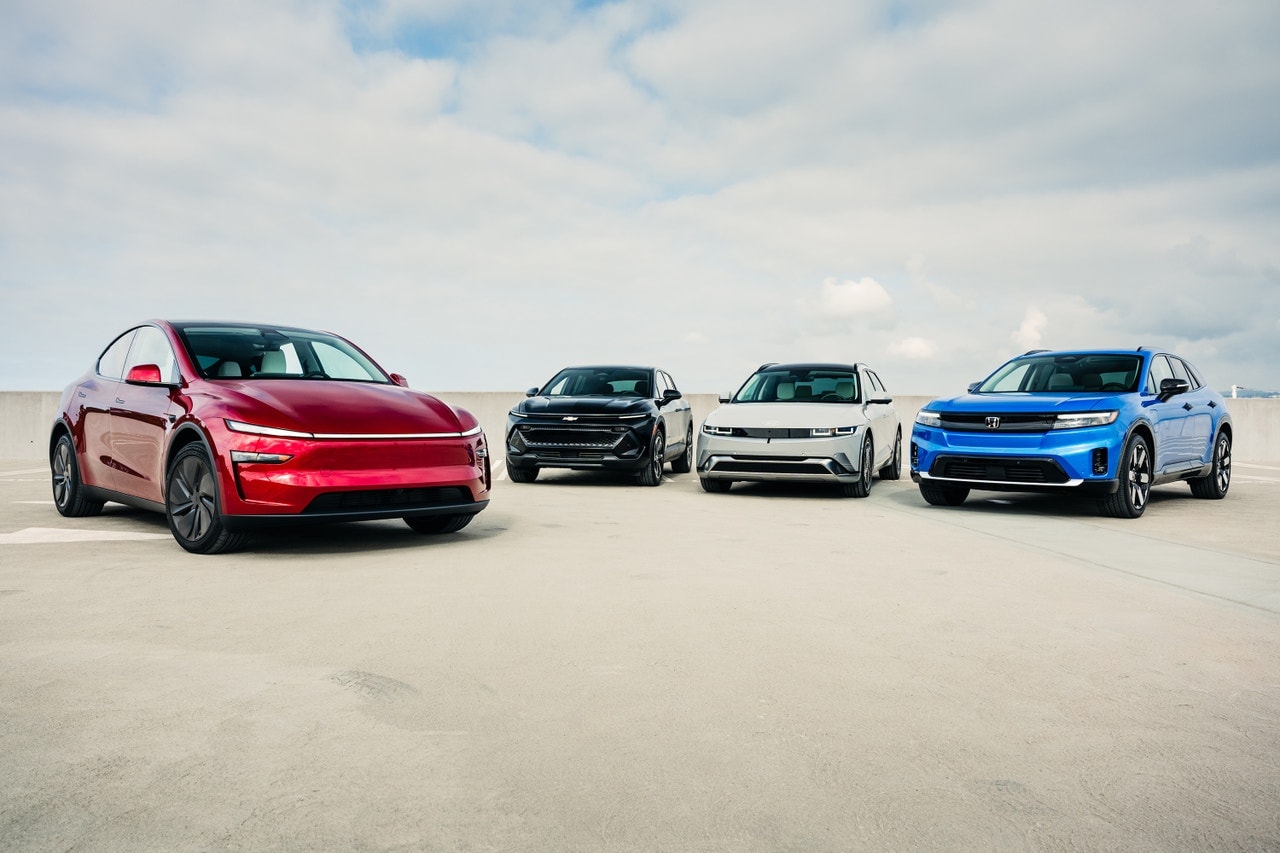
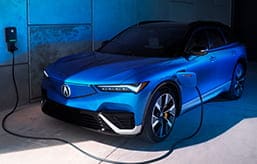
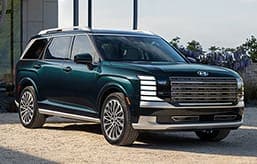
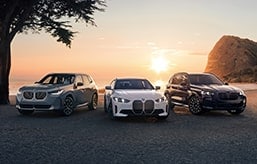
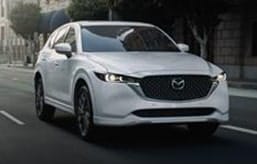
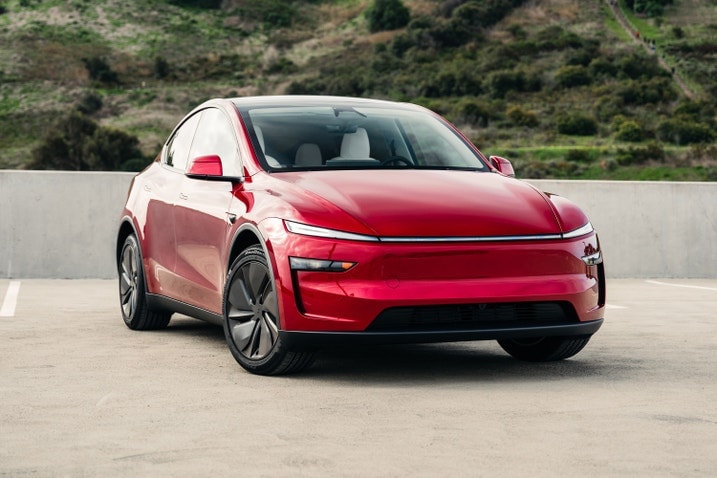
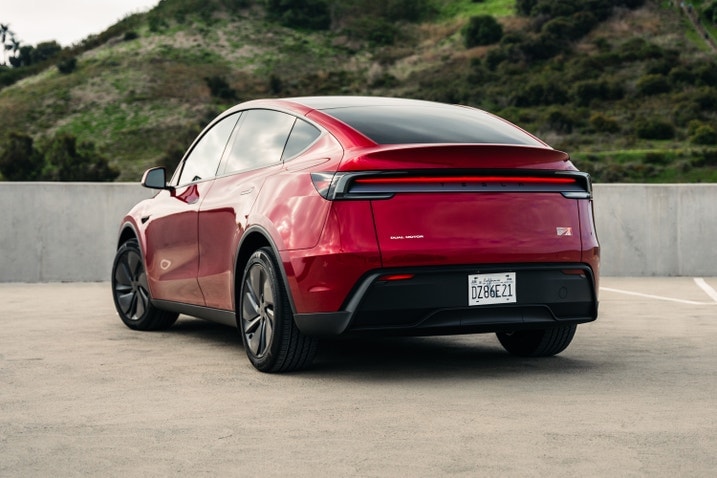
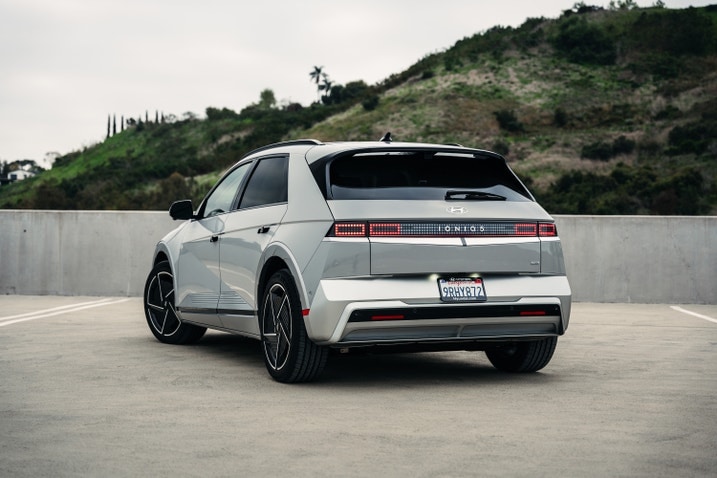
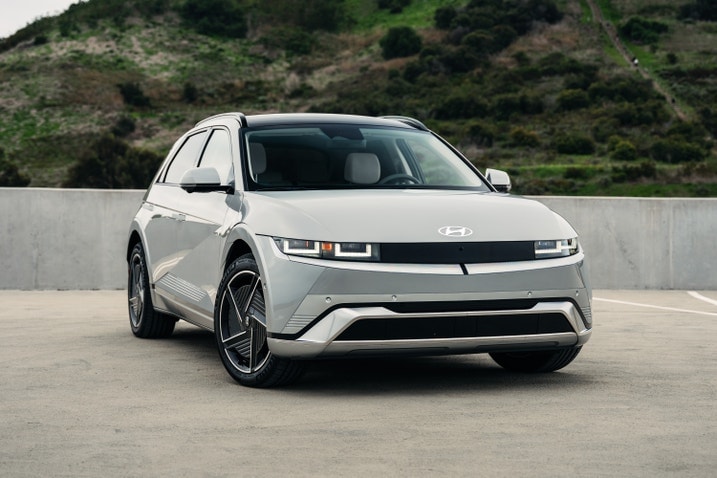
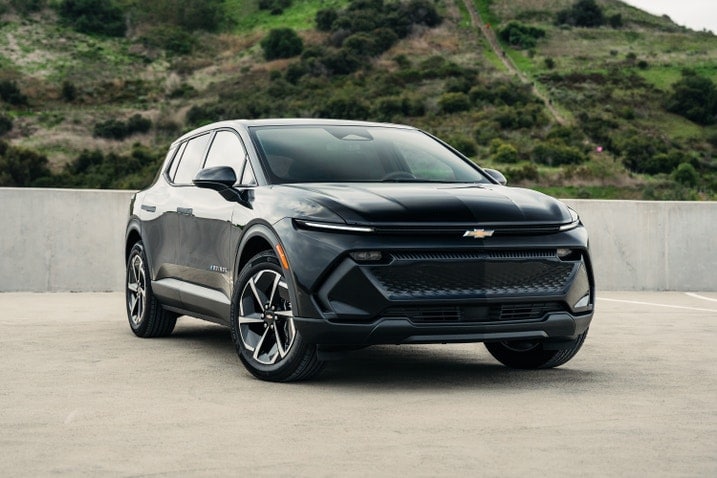
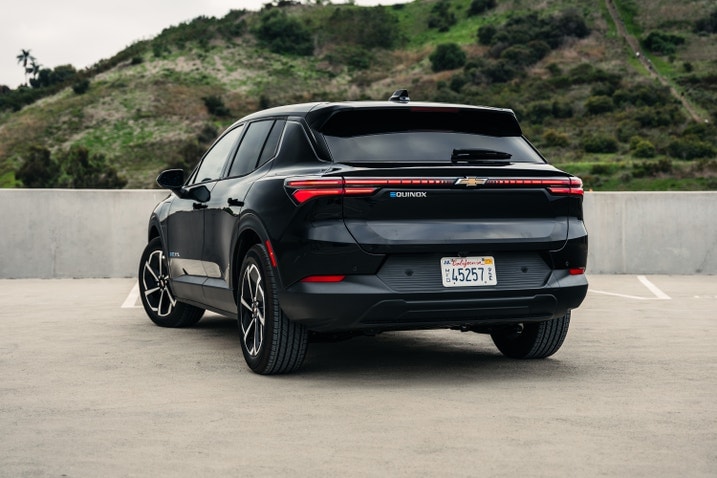
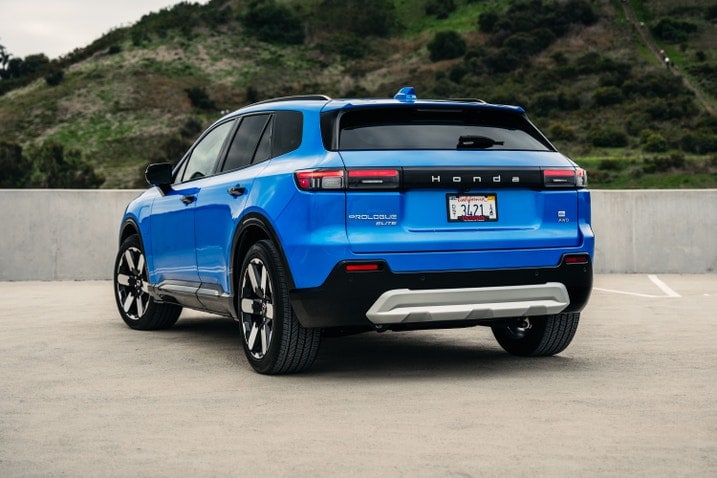
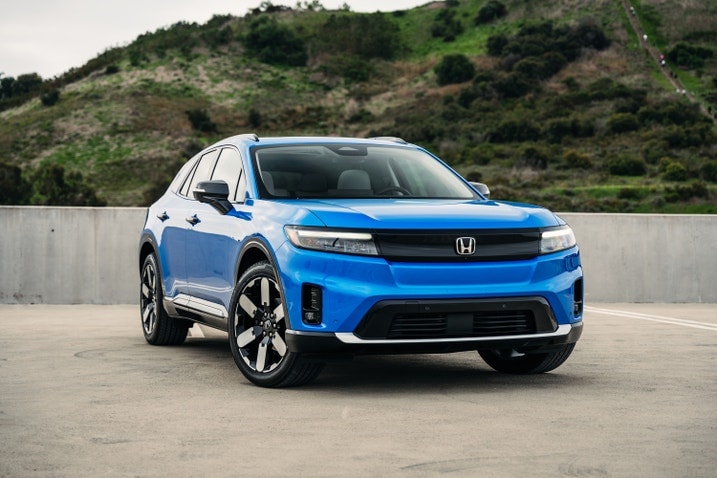
 by
by  edited by
edited by